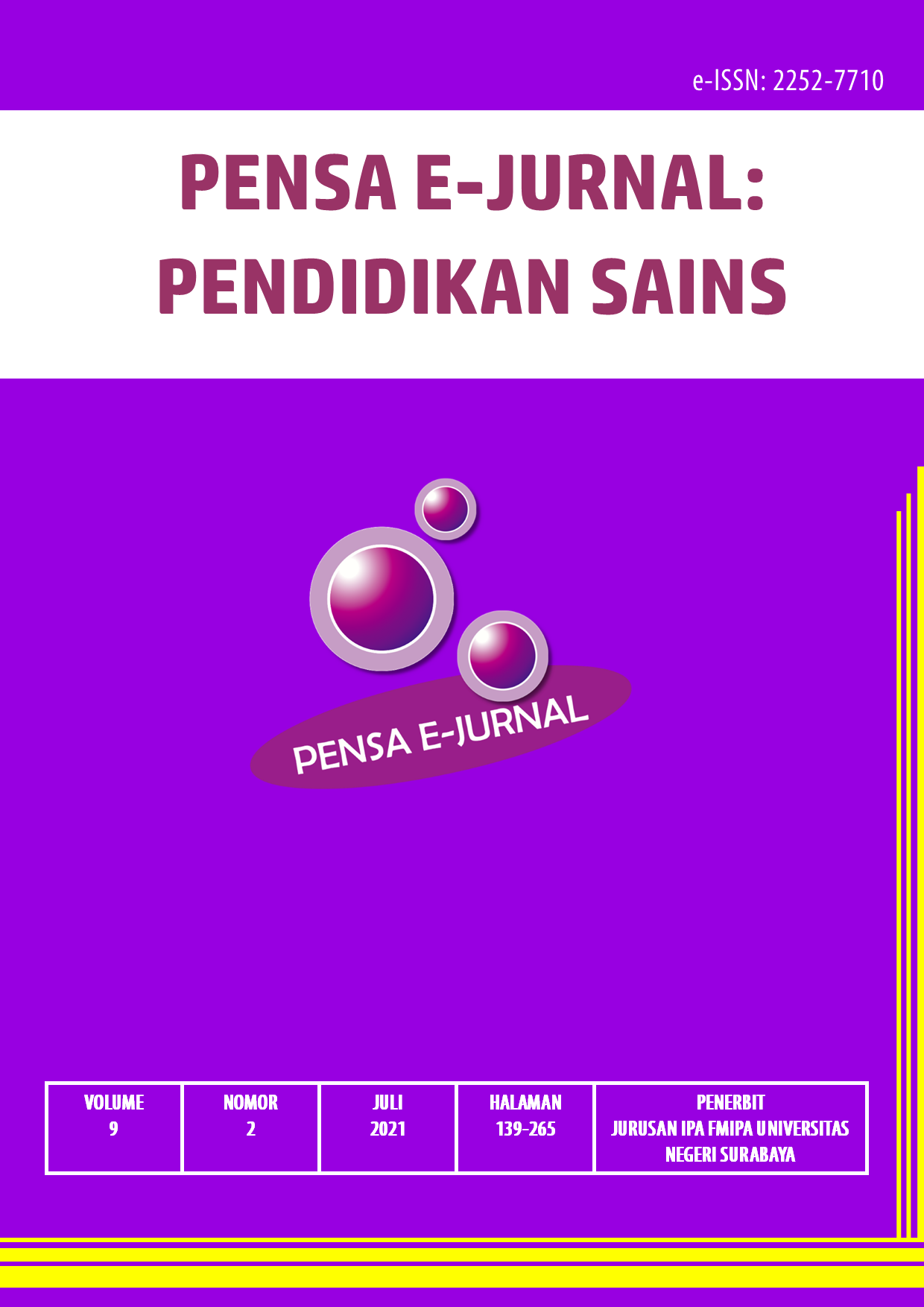PENGARUH PEMBELAJARAN E-LEARNING EDMODO TERHADAP KEMAMPUAN BERPIKIR KRITIS SISWA SMP PADA MATERI KALOR DAN PERPINDAHANNYA
DOI:
https://doi.org/10.26740/pensa.v9i2.38031Abstract
The low critical thinking skills of students in Indonesia, which can be seen from the international scale learning outcomes and the lack of facilities for students to think critically well, illustrates that training students' critical thinking skills become urgent. The purpose of this research was describe the achievement of students' critical thinking skills in terms of each critical thinking indicator and as a whole based on the category of critical thinking ability levels and student responses to Edmodo e-learning learning on Heat and Transfer material. This research method is a pre-experimental design with a One-Shot Case Study design. The results showed that the critical thinking of the students for each indicator of critical thinking was in a good category. Critical thinking indicators used are elementary clarification, basic support, inference, advance clarification, and strategies and tactics. The overall critical thinking ability of students based on the level category of critical thinking skills varies with details that 12.50% of students are classified as very good, 53.13% of students are in a good category,31.25%,of student are in the moderate category, 3.13% of students are categorized as bad, and 0% of students are in the very bad category. Student responses to Edmodo's e-learning learning on Heat and Transfer material received positive responses.
Downloads
Downloads
Published
How to Cite
Issue
Section
 Abstract views: 907
,
Abstract views: 907
, PDF Downloads: 1047
PDF Downloads: 1047

















